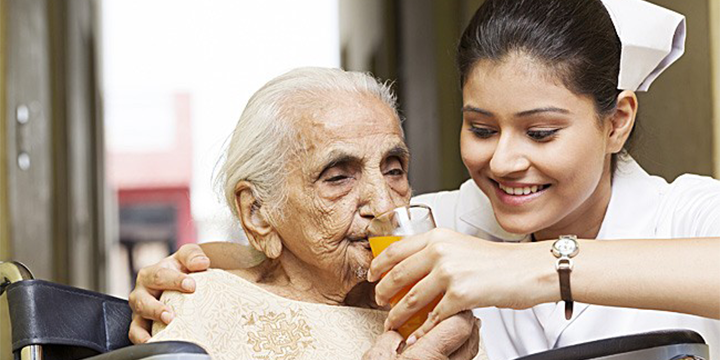There is no “perfect” way to take care of an elderly suffering from Dementia except with the most love and patience that you are able to muster on that day. As a family member, it is often a struggle to understand, comprehend and accept the cognitive decline and the associated behavioural changes in our loved one suffering from dementia.
While most of the care is focused on the well being of the person suffering from Dementia, what we often tend to overlook is the immense pressure on the primary caregiver. What we tend to forget is that he/she is making tremendous sacrifices to ensure that the person suffering from Dementia is receiving the best care. And, more often than not, this primary caregiver is the spouse of the patient suffering from Dementia and is also elderly.
While taking care of those with Dementia, I have learned that the spouses are often the most courageous people that I have ever come across. They not only put up with and adequately manage incidents of extreme aggression, depression and confusion among the patients, but they also ensure a safe and secured environment for their loved ones. But, even the strongest of the strong are bound to reach a point after which they will tend to break.
Feelings of worry, strain, overload, anger and depression are common among the primary caregivers. In addition, the other common difficulties that I have seen the primary caregivers battling with are:
- Changes in the nature of relationship with the loved one;
- Coping with aggressive and violent behaviours of the loved one;
- Loss of ability to socialise and loss of ‘me’ time, as caring duties and the needs of the family member are prioritized;
- Negative impact on personal and professional goals;
- Regular battle with high levels of stress, anxiety and depression;
- Severe exhaustion caused by sleep deprivation and excessive household chores;
- Long term uncertainty;
- Poor quality of life.
My experience in working with the people suffering from Dementia and their loved ones has really taught me a lot about how the loved ones deal with the difficult circumstances. Some of the most effective means of coping with the difficulties and getting used to the role of the primary caregiver may be the following:
- Most importantly, find some “ME” time! Find some time for doing the things that give you happiness and peace of mind, apart from looking after your loved one;
- At least twice a week, arrange for some other family member or a professional helper who may look after your loved one while you go out shopping, or simply go out with your friends for a cup of tea/ coffee, have fun, have a chat, release and ventilate;
- Do not feel guilty for at times losing your temper with your loved one. Understand that you are also a human being and hence, once in a while, it is really okay to lose your patience;
- Sign up for a caregiver support group, where you will be able to meet people in similar situations. In these groups, you will also be able to learn from the other group members and realize that you are not alone!
- Obtaining some counseling for yourself will help you to manage your stress and frustrations. Stress reduction does wonders and once you have been through some training on stress reduction, you will feel more rejuvenated and will be in a better position to take care of your loved one;
- At times, don’t feel scared or ashamed to ask the professionals around you for some respite care facility for your loved one. This will serve dual purposes for you. On one hand, your loved one will be under professional surveillance, while being among a group of people who are suffering in the same way that he/ she is. On the other hand, it will allow you, the primary care giver, to take a much deserved break!
We can only pour out of a cup that is full to some extent. Similarly, we can only take care of our loved ones suffering from Dementia if we ourselves are doing well. Seeking professional help for the care of your loved one is nothing to be ashamed of. Rather, it is a sign which says that you really care and you wish to give your loved one the best service and care that you possibly can.
If you need further help or advice, give us a call. TriBeCa Care is happy to be by your side. Request a callback or Call us at + 913366064208. Email us at enquiry@newwpsite.tribecacare.com
(This blog has been written by a registered Clinical Psychologist on the TriBeCa Care Mental Health Team)

